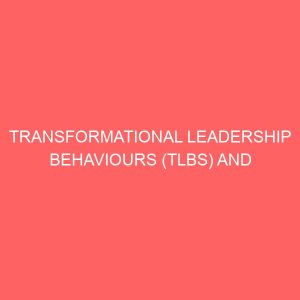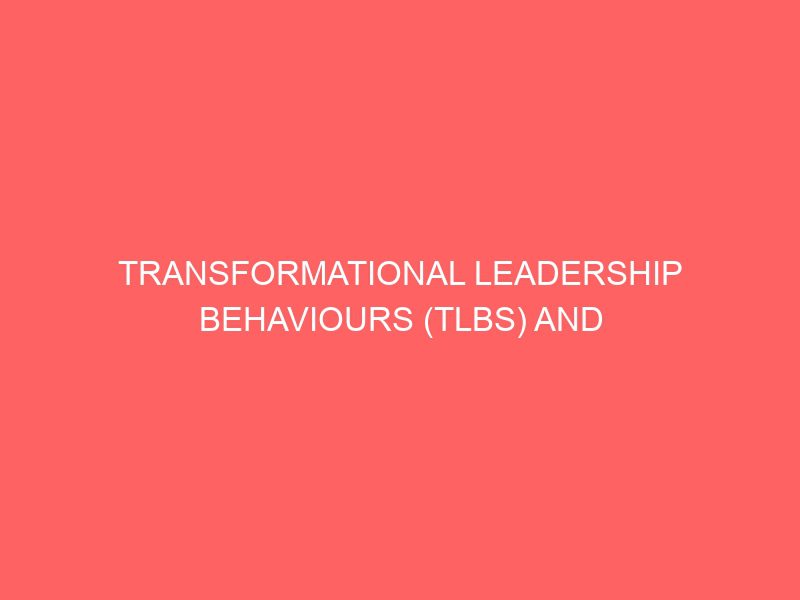Description
CHAPTER ONE INTRODUCTION 1.1 Background to the Study In this era of globalization, technology has been of great relevance, reducing the whole world to a global village. Following this, successful leaders world over tend to draw ideas from one another giving rise to the modern leadership concept known as `transformational leadership behaviours which in turn has a lot of impact world over on education generally (Onwurah, Chiaha and Ogbuanya,2007). World class status has always been the aspiration of any university that intends to continue to be in the education industry (Rozainun, Noormala, Puzziawati, Rohana, 2009). The world declaration on High Education for the 21st Century (1998) affirmed that the ultimate goal of education management is to enhance the institutional mission by ensuring high quality teaching , training, research and services to the community?. The achievement of these objectives requires governance that combines social vision with the understanding of global issues coupled with efficient managerial skill. .Bryman, (1992) and Lowe K.B, and Sivasubramaniam, (1996) opined that in more than 100 empirical studies, transformational leadership has been found to be consistently related to organizational effectiveness. Fullan (2001) claimed that the search for effective leadership led to the discovery of transformational leadership behaviours (TLBs). According to Leithwood (2000), Transformational leadership is that which facilitates a redefinition of a people?s mission and vision, a renewal of their commitment and the restructuring of their systems for goal accomplishment. Transformational leadership fosters capacity development and brings higher levels of personal commitment amongst ?followers? to organizational objectives. According to Bass (1990, 21) transformational leadership ?occurs when leaders broaden and elevate the interests of their employees, when they generate awareness and acceptance of the purposes and mission of the group, and when they stir employees to look beyond their own self-interest for the good of the group.? Together, heightened capacity and commitment are held to lead to additional effort and greater productivity (Barbuto, 2005; Leithwood & Jantzi, 2000; Spreitzer, Perttula & Xin, 2005). According to Bass (1997) the four components of Transformational leadership behaviours are as follows: Idealized influence is having transformational leaders who behave in ways that result in their role models for their followers (Breaux 2010:1). Genuine trust must be built between leaders and followers. If t







